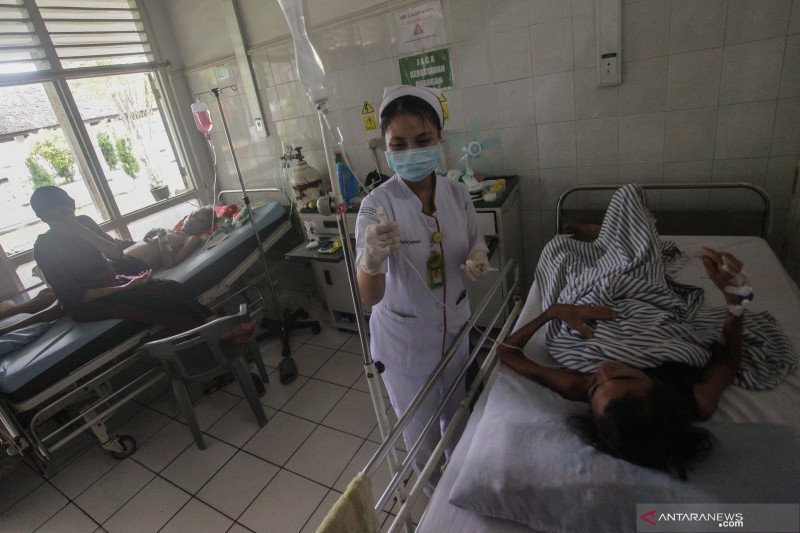Jakarta (ANTARA) – The XVI National Congress of the Indonesian Lung Doctors Association (PDPI) in 2021 initiated a number of work programs to control and eradicate lung health problems.
“The problem of air pollution, high cigarette consumption and low compliance with not smoking in public places, the transmission of lung disease that has not been controlled are still the main problems in Indonesia,” said PDPI National Committee Chairman Agus Dwi Susanto in a webinar agenda that was monitored virtually in Jakarta. , Friday.
Problems related to lung health are also added to the incidence re-emerging disease “Threats such as COVID-19 are still the main thing that causes illness, death and has an impact on productivity and high health financing,” said Agus.
He said one of the diseases that is still a challenge is tuberculosis (TB). The latest data in 2020 shows that the number of cases nationally reached 67 percent, occurred in the productive age of 15 to 54 percent, and 9 percent of children less than 15 years of age had TB.
Also read: Once again held, KONAS PDPI discusses medical issues in the midst of a pandemic
Also read: Doctor: Lung cancer is the leading cause of death in Indonesia
According to Agus, Indonesia is one of the countries with the highest TB burden in the world with an estimated number of people falling ill due to TB reaching 845,000 with a death rate of 98,000 or equivalent to 11 deaths per hour.
“PDPI as an organization consisting of doctors in the fields of Pulmonology and Respiratory Medicine has always been committed to dealing with problems in the field of respiration including in the context of TB control by playing an active role in promotive, preventive and handling TB cases in accordance with standard treatment,” he said.
Participants of the event were reminded to always make TB as one of the topics discussed by displaying the latest data, the latest treatments and the latest strategies to support the elimination of TB by 2030.
“Therefore, in welcoming PP No. 67 of 2021 concerning Tuberculosis Management, we will always be committed and synergize with this policy,” he said.
PDPI agreed to implement program strengthening efforts, including preparing and implementing planning through mapping of areas reported to have decreased cases during the COVID-19 pandemic, intensive case finding through active case finding in vulnerable areas and populations and provide nutrition for TB patients and their families.
Strengthening is also carried out in efforts to increase the use of digital technology such as: tele consultations to improve access to health services, virtual services for TB patients, monitoring and management.
“We also apply program strengthening at the community level through: community capacity building and community networks,“he said.
Lastly, Agus said, is strengthening the use of research for the benefit of patients.
“Tuberculosis needs to be an activity across programs or sectors with programs and resource support. TB treatment also includes health problems related to HIV, DM, smoking, nutrition and others,” he said.
For that Agus advised all members to continue to strengthen the role of pulmonary specialists in handling patients according to the guidelines, health education, education of health workers, doctors, specialists.
“We also strengthen communication with the central and regional health sectors, conduct advocacy across government and private sectors, conduct scientific and popular publications, basic research, clinics and field studies and become the main guard for TB elimination,” he said.
Also read: PDPI: Take the pandemic seriously so it won’t be like what happened in India
Also read: Doctors’ professional organizations urge the government to implement PPKM simultaneously
Reporter: Andi Firdaus
Editor: Erafzon Saptiyulda AS
COPYRIGHT © ANTARA 2021
–


